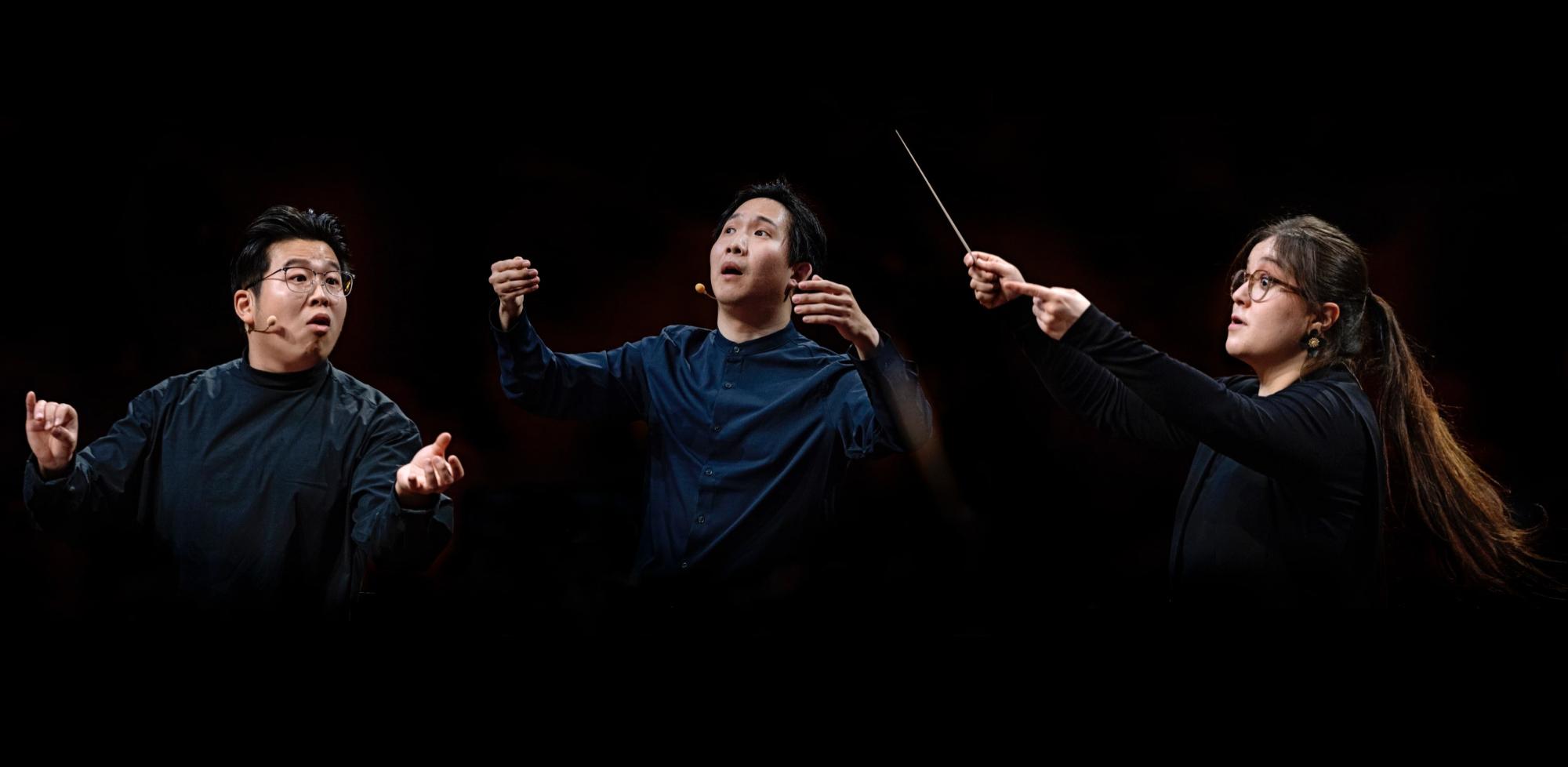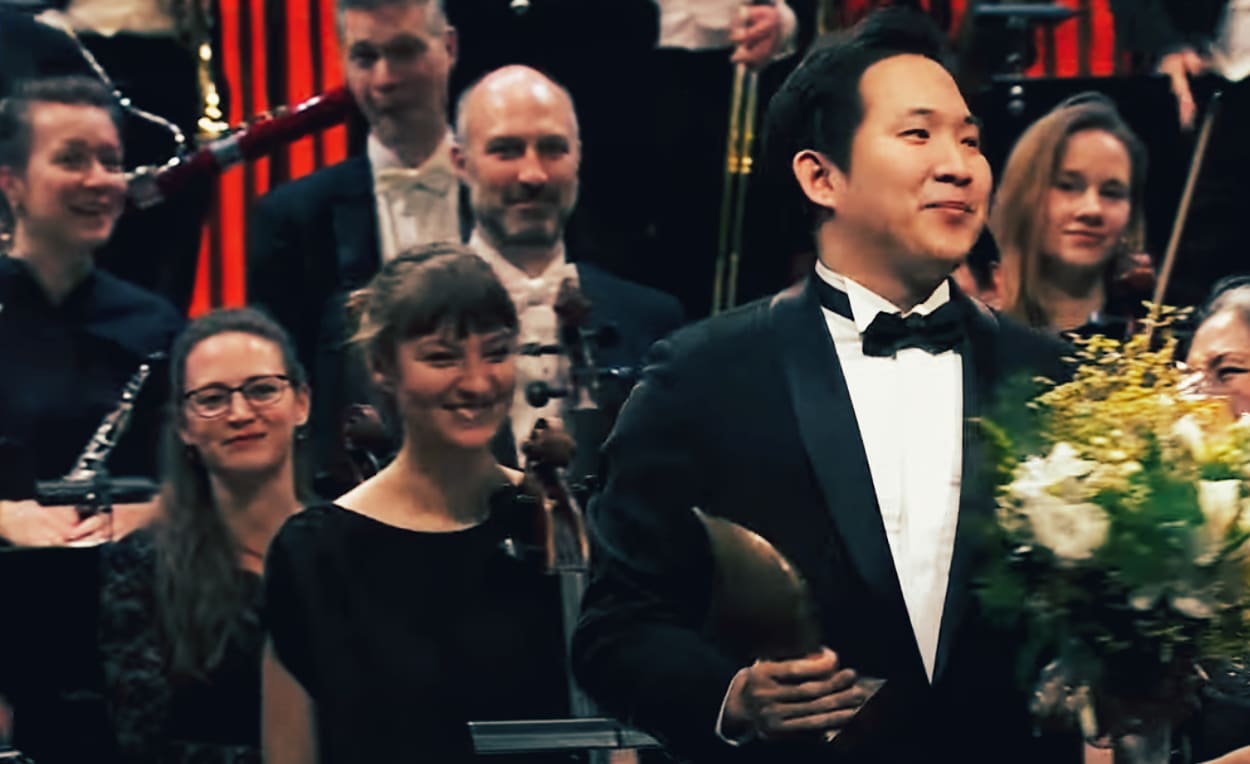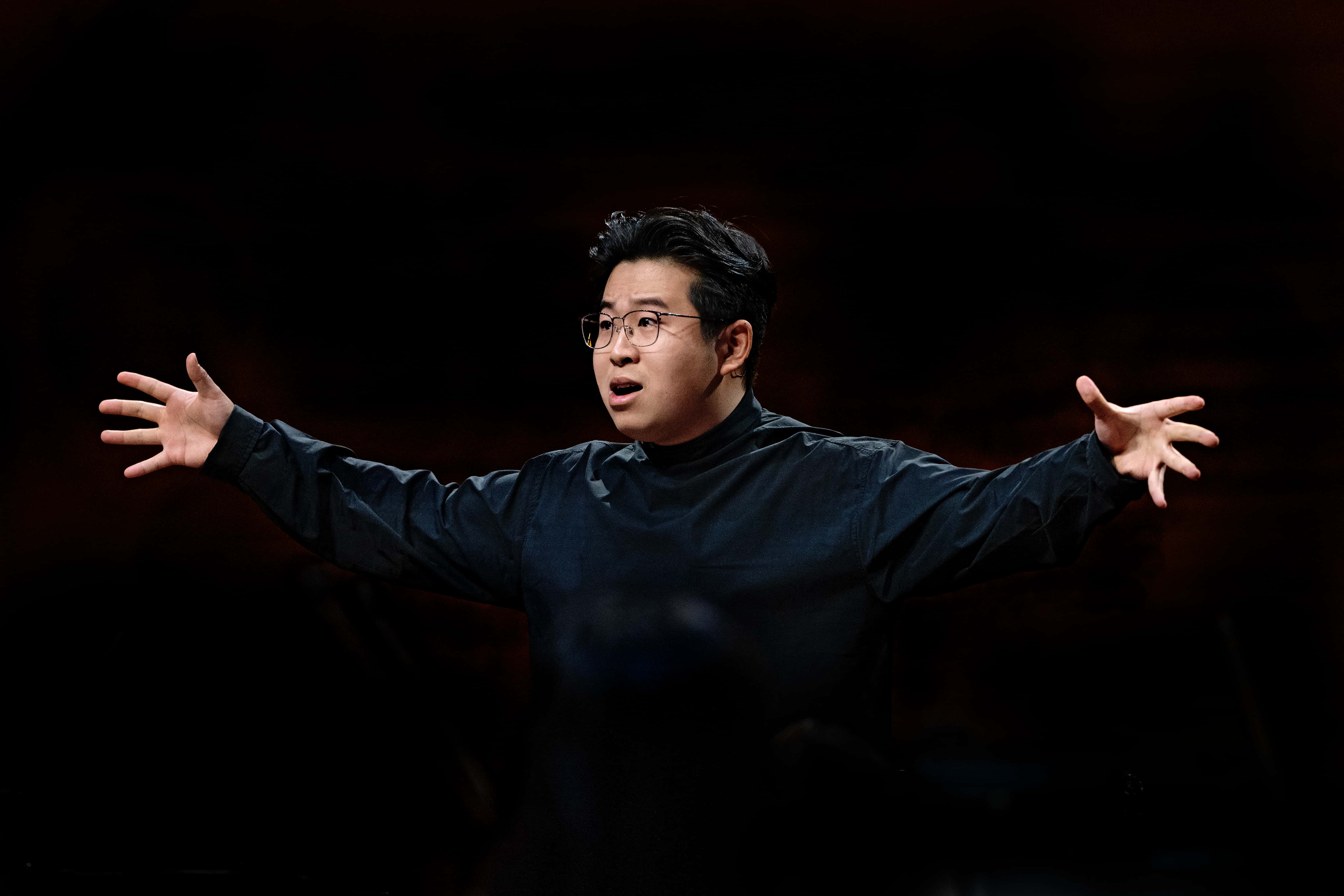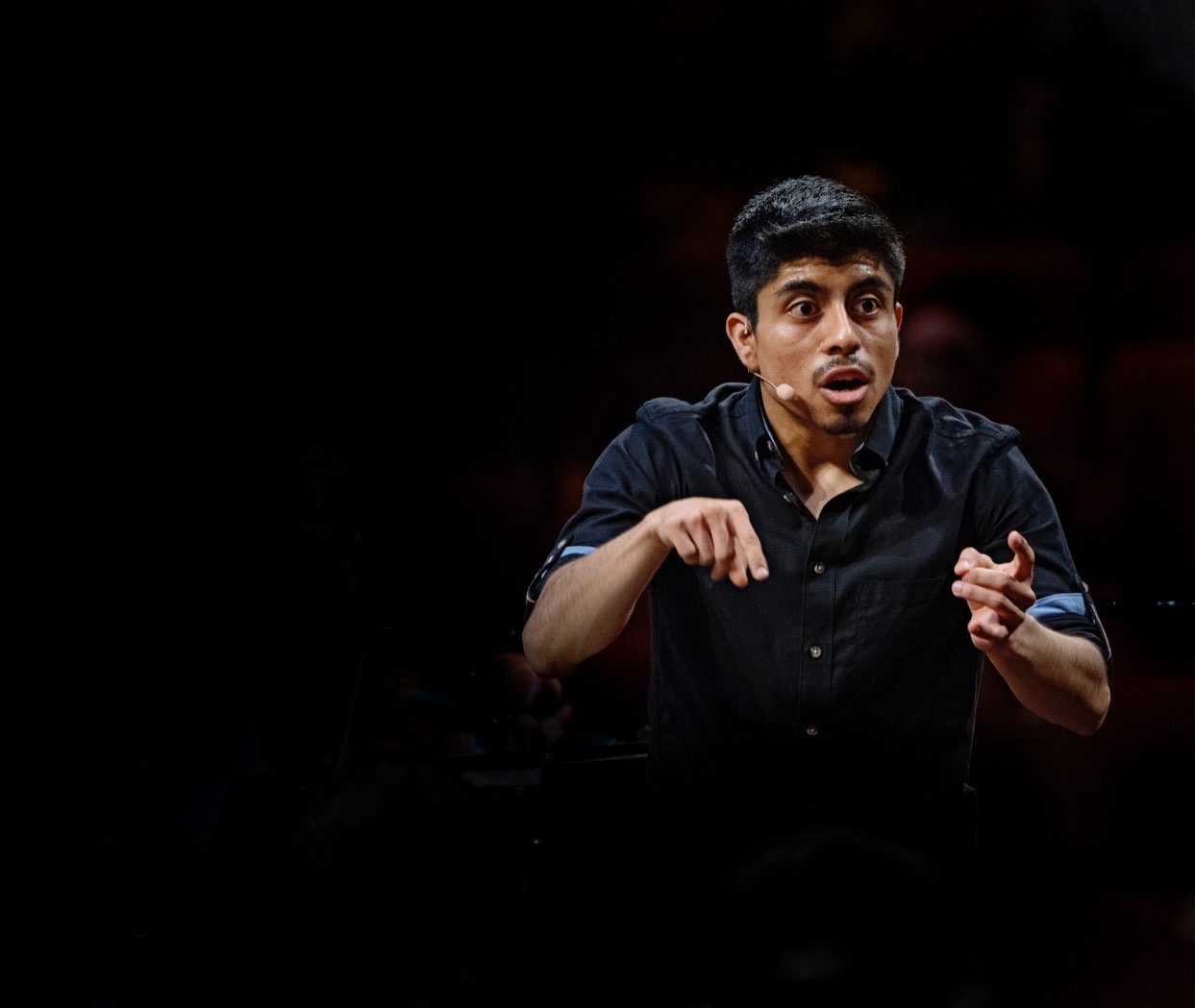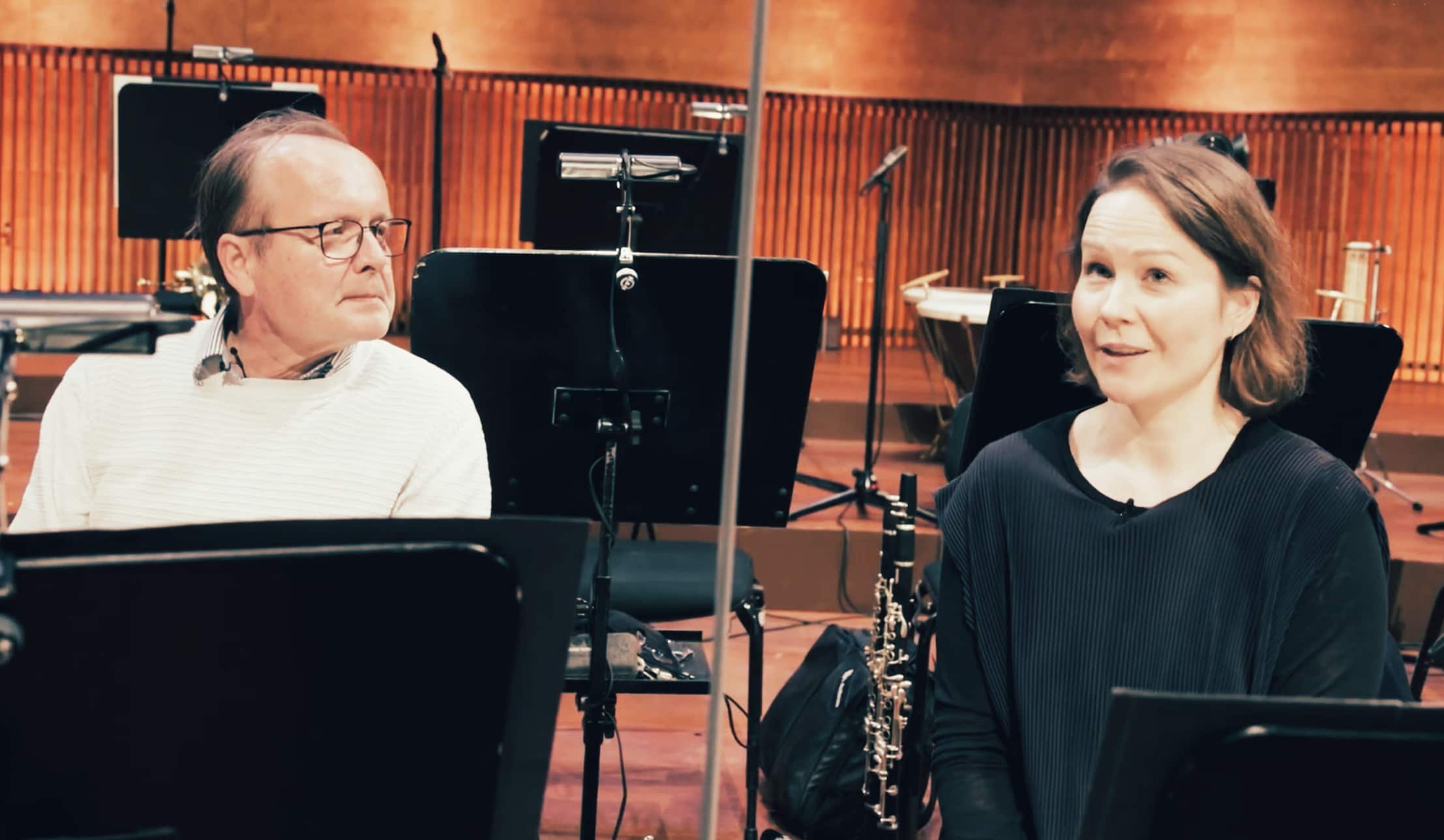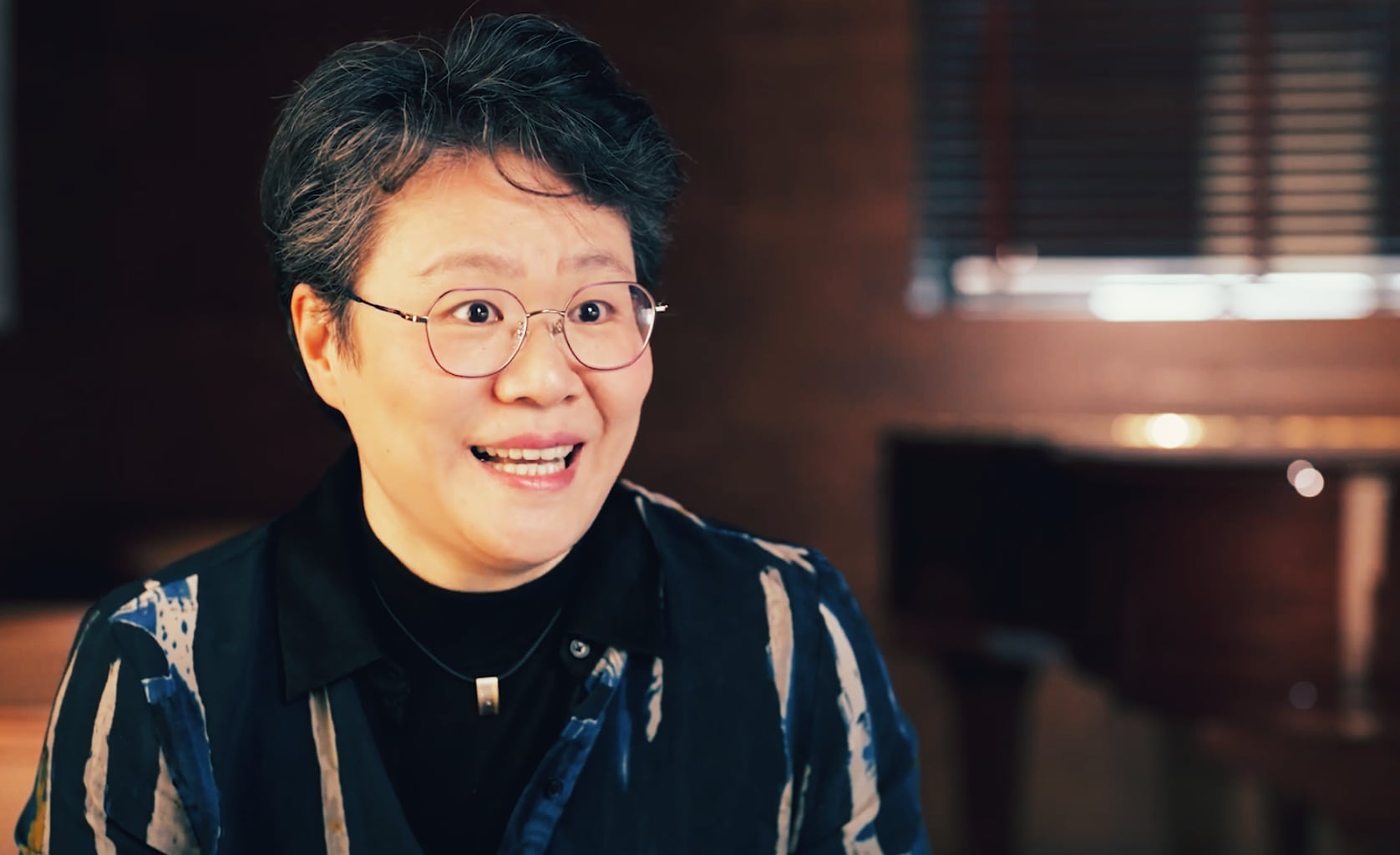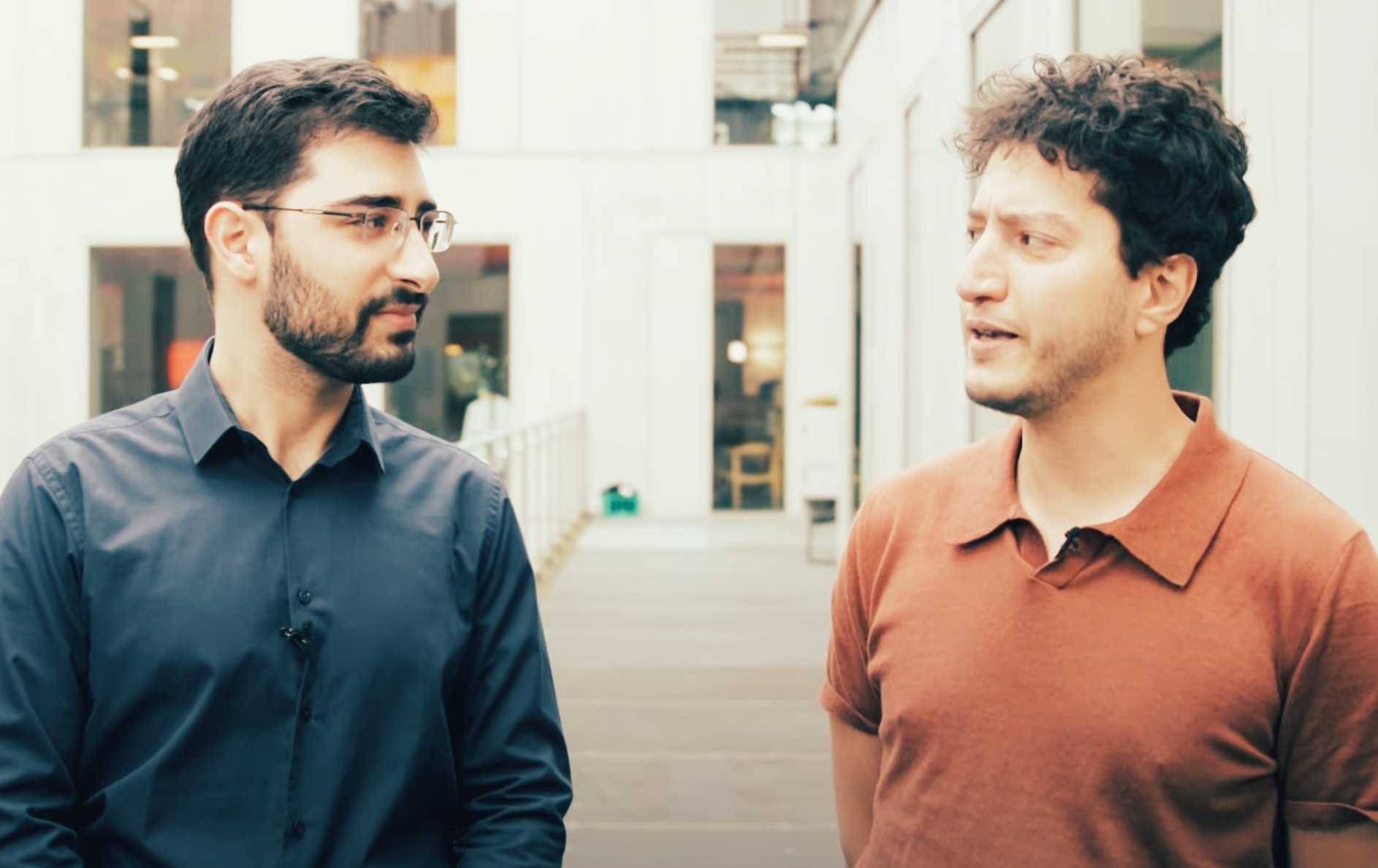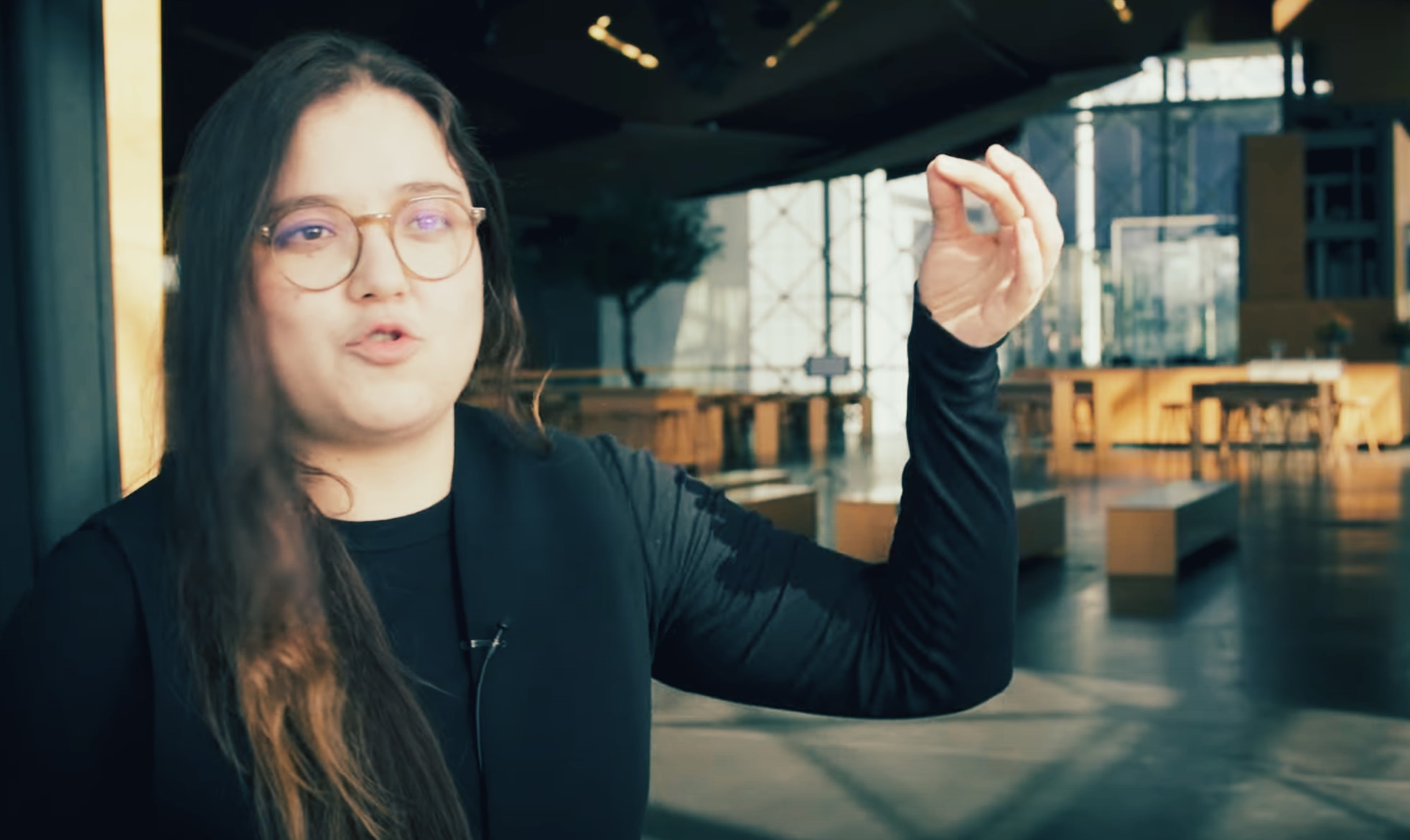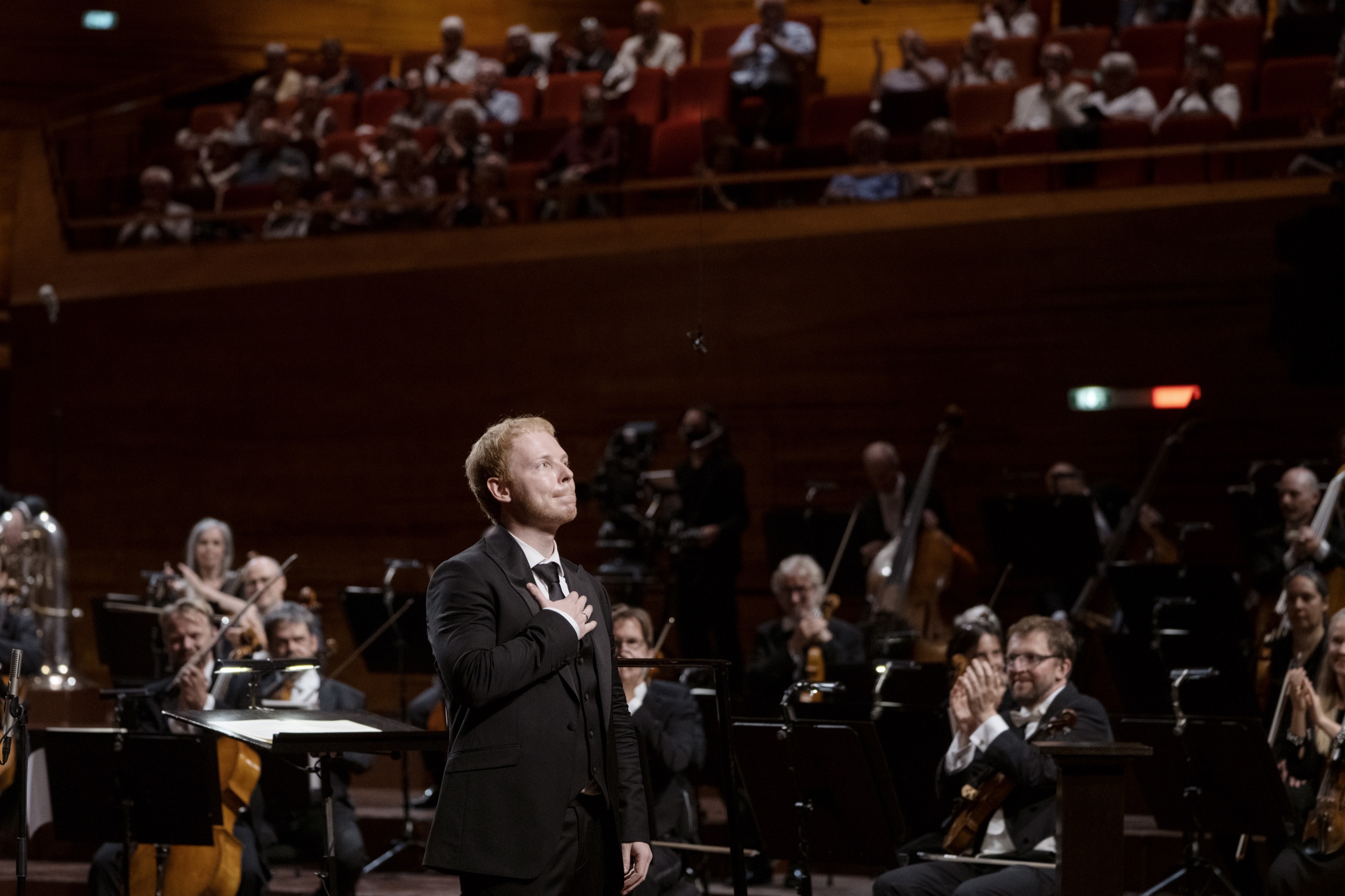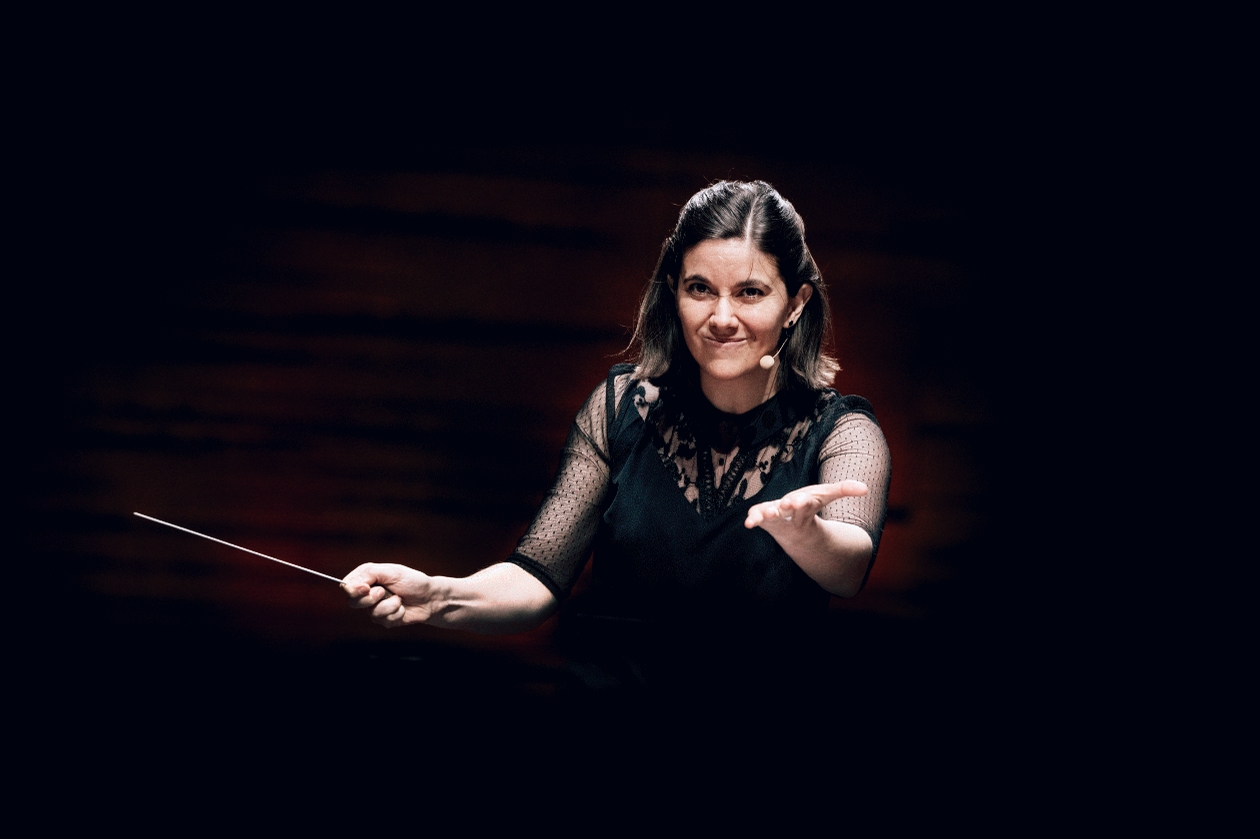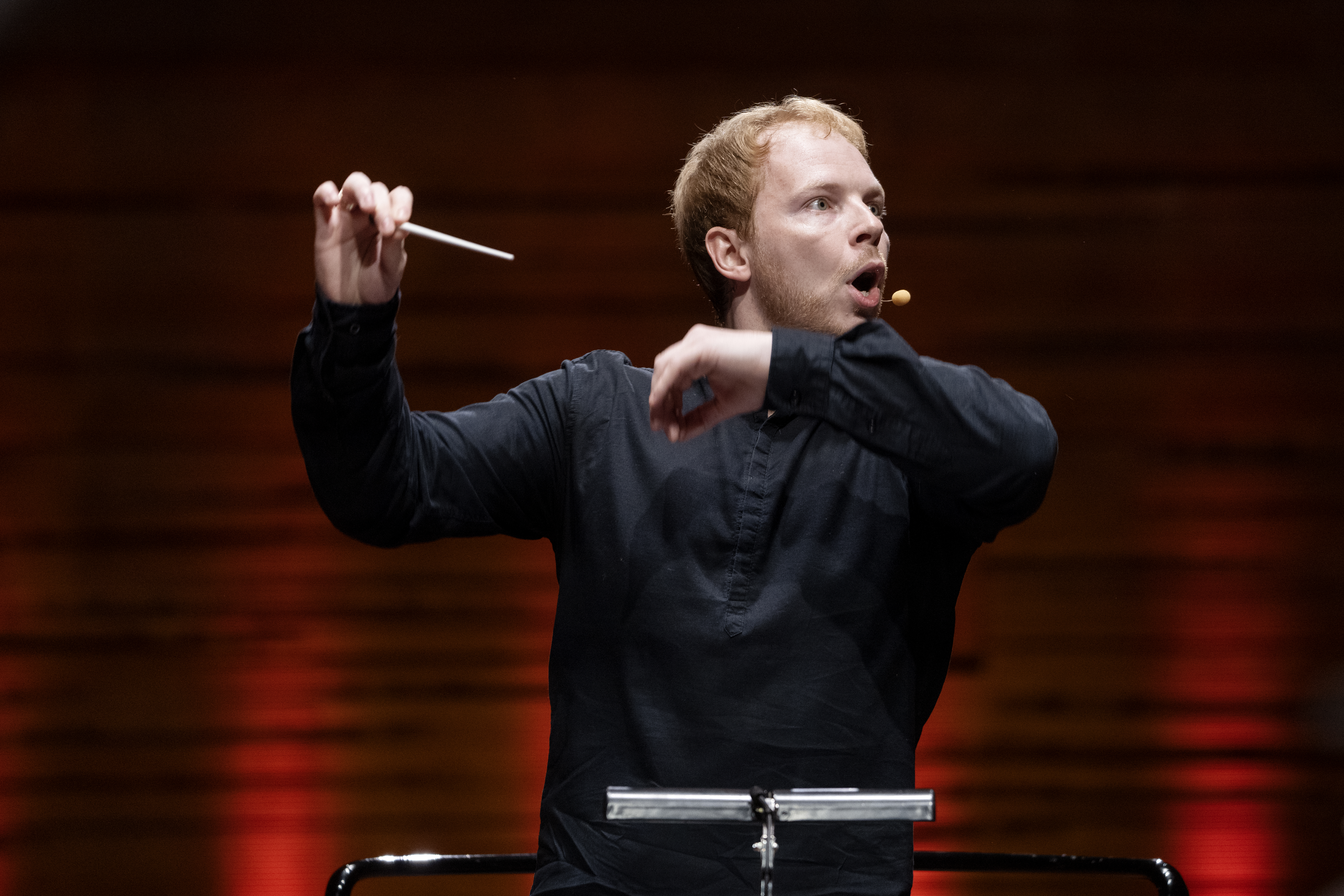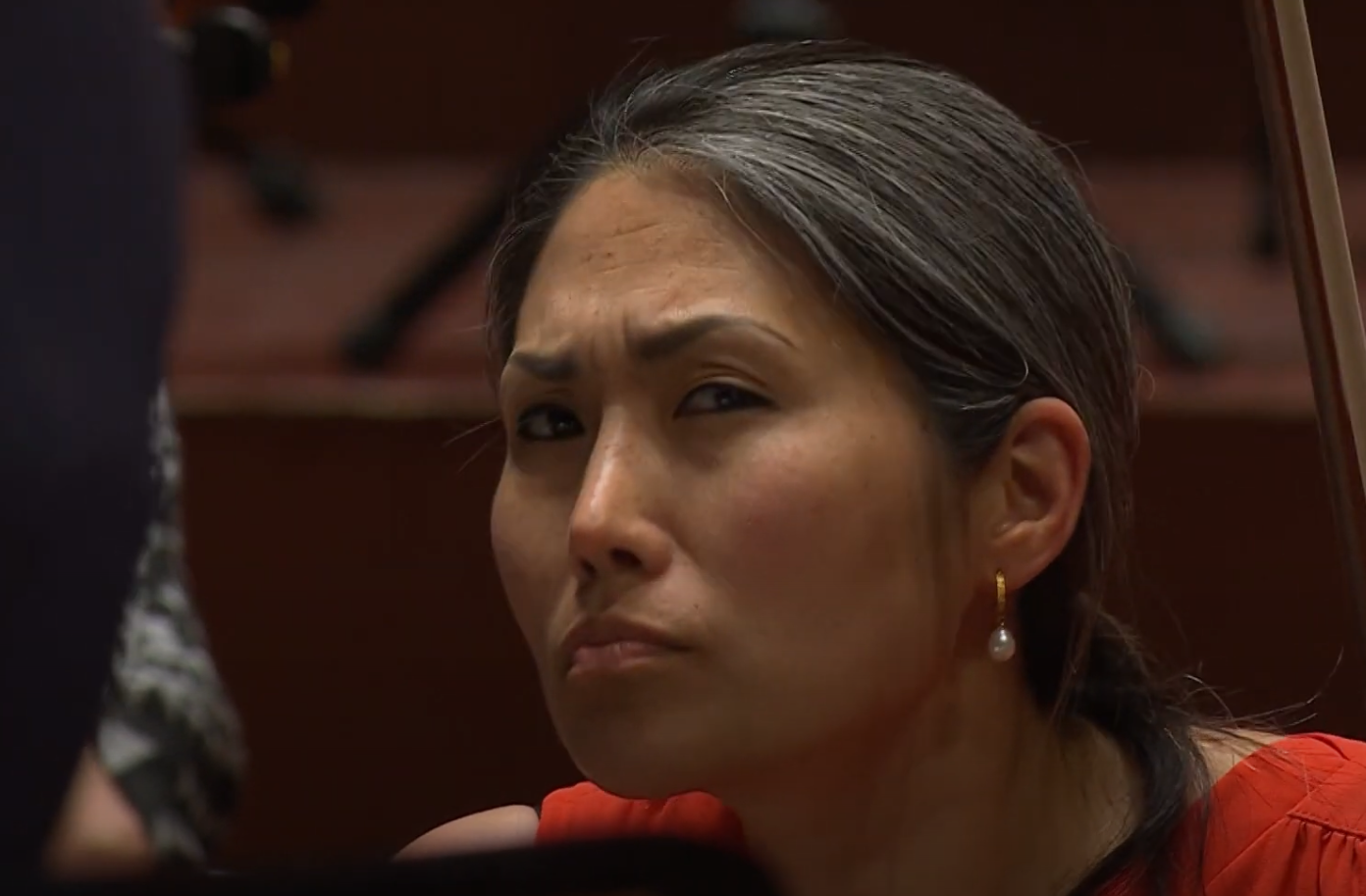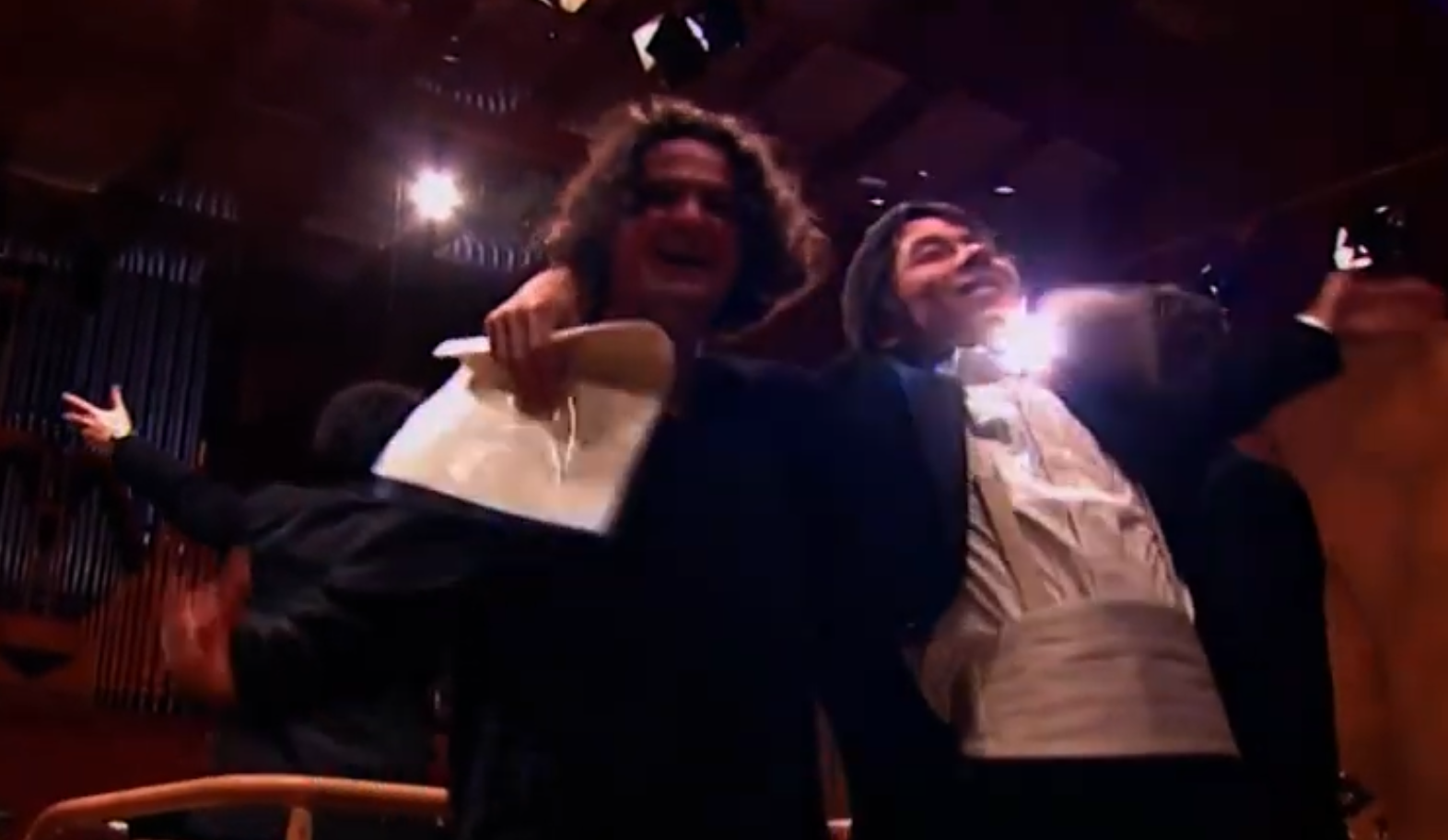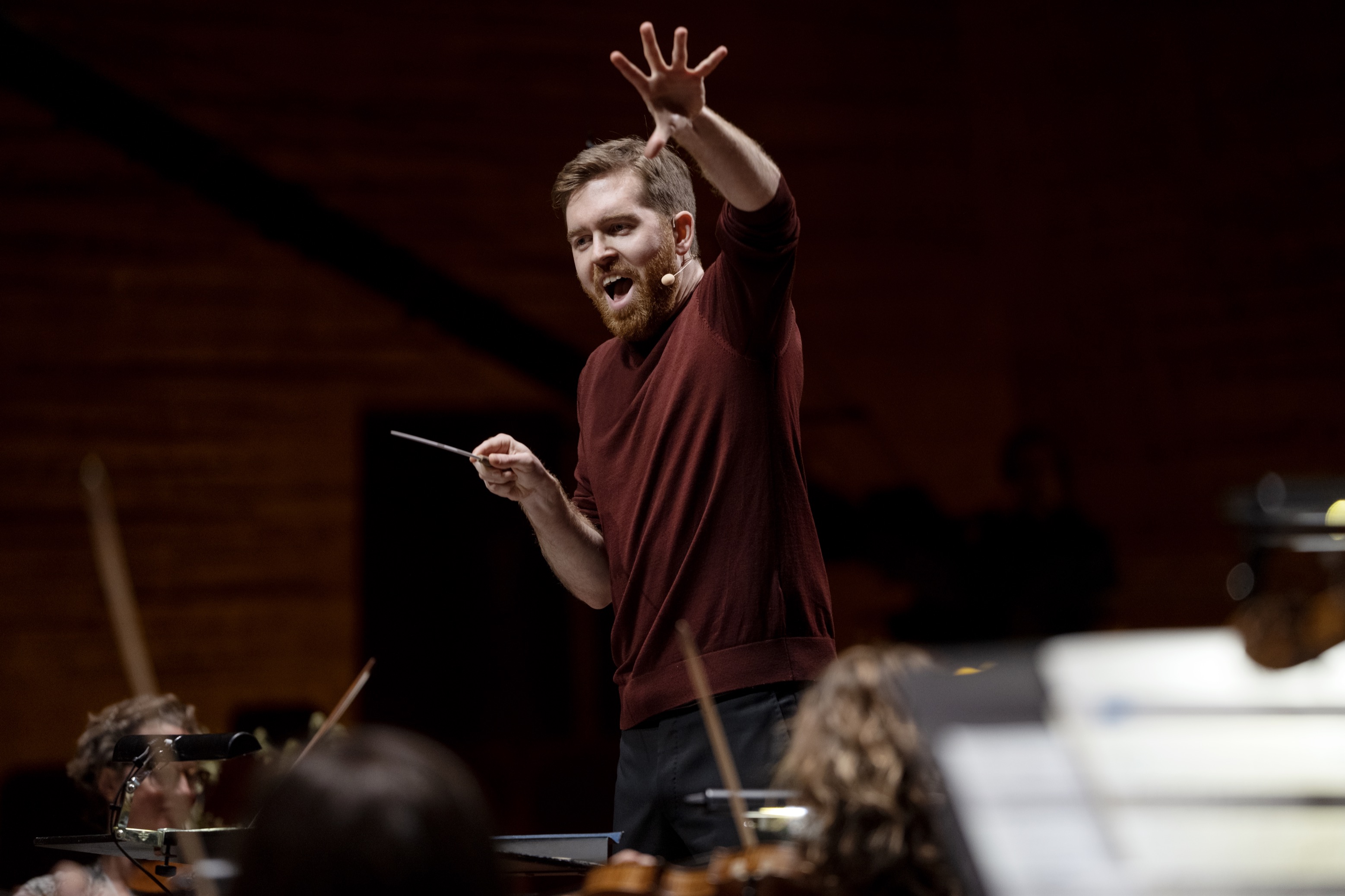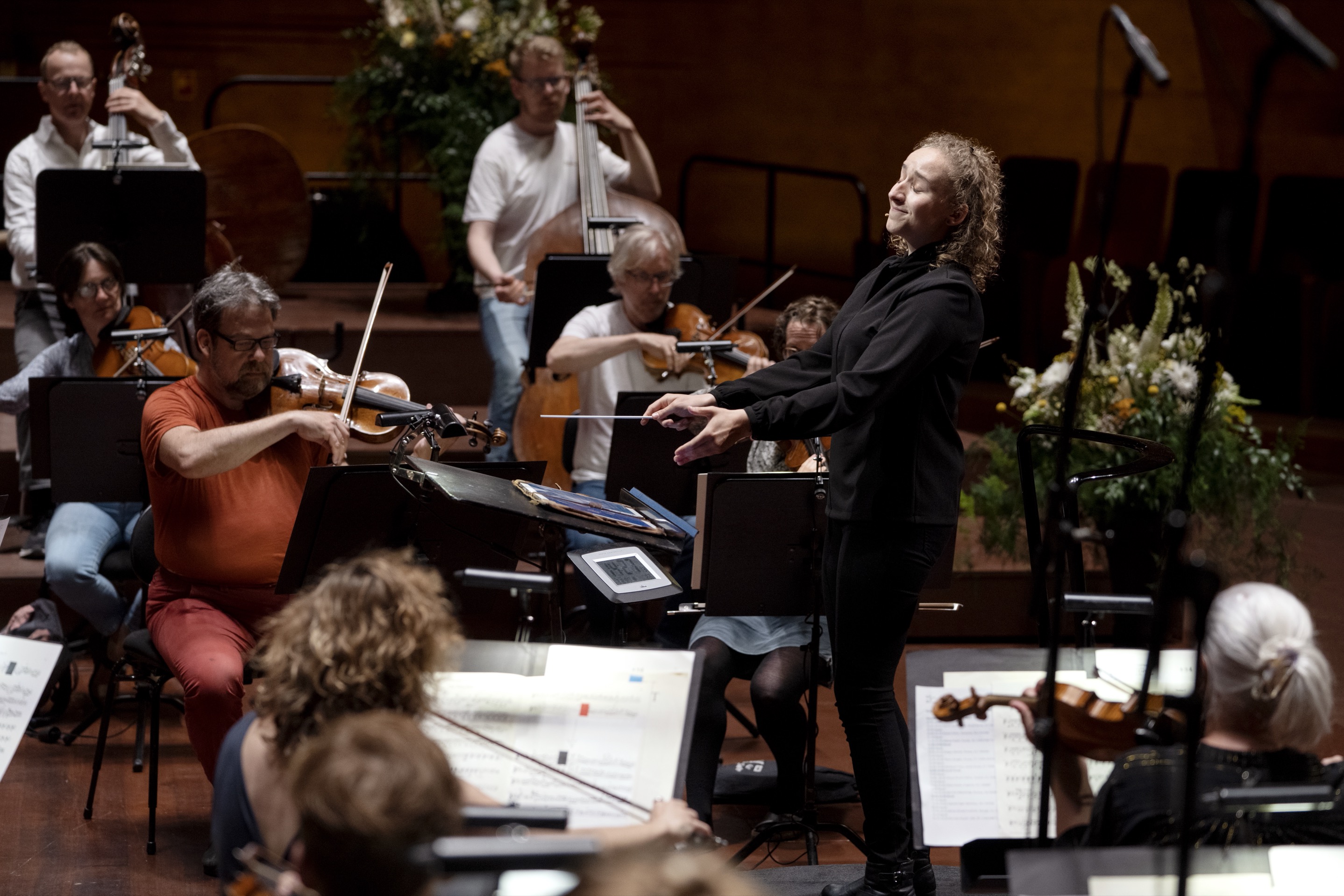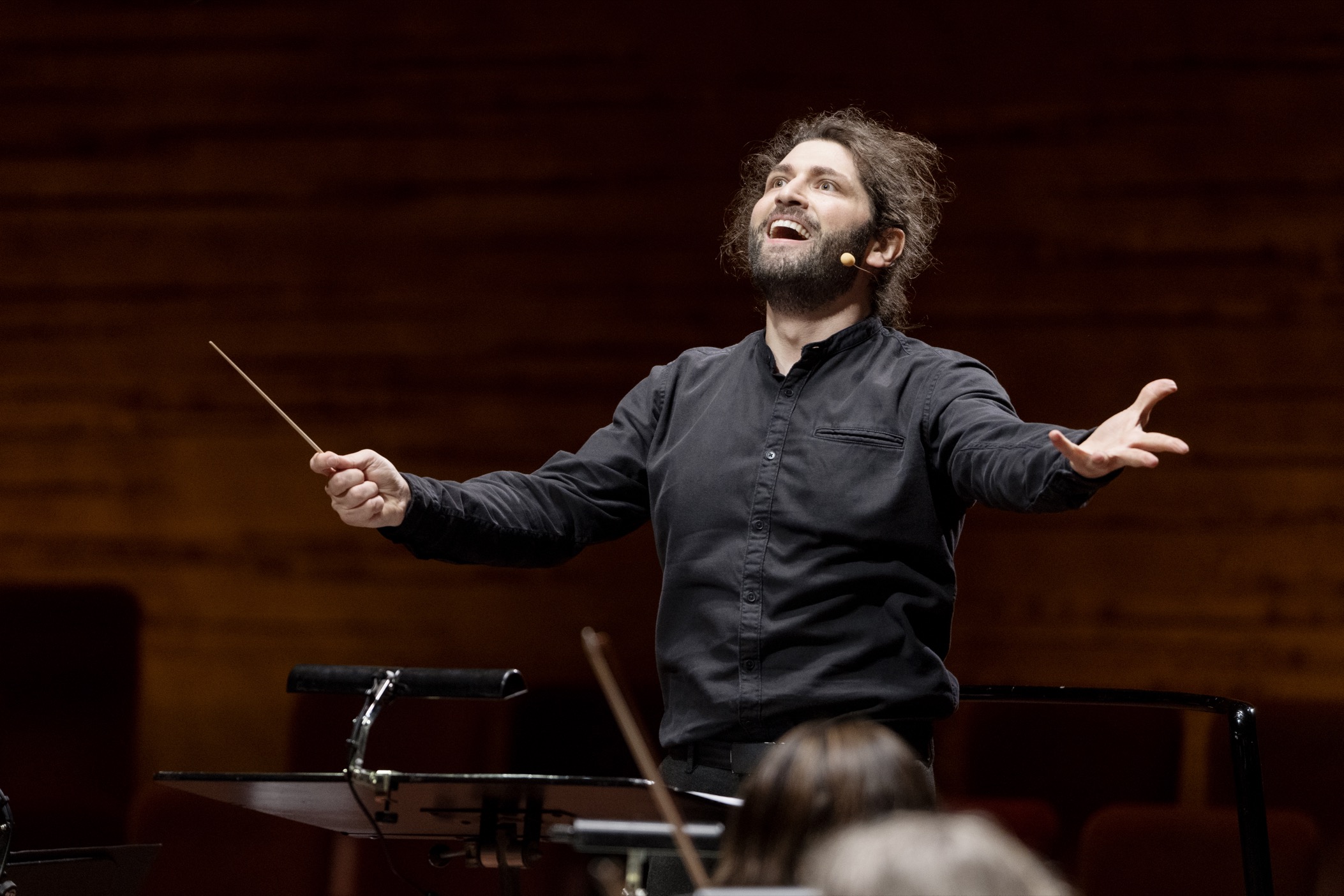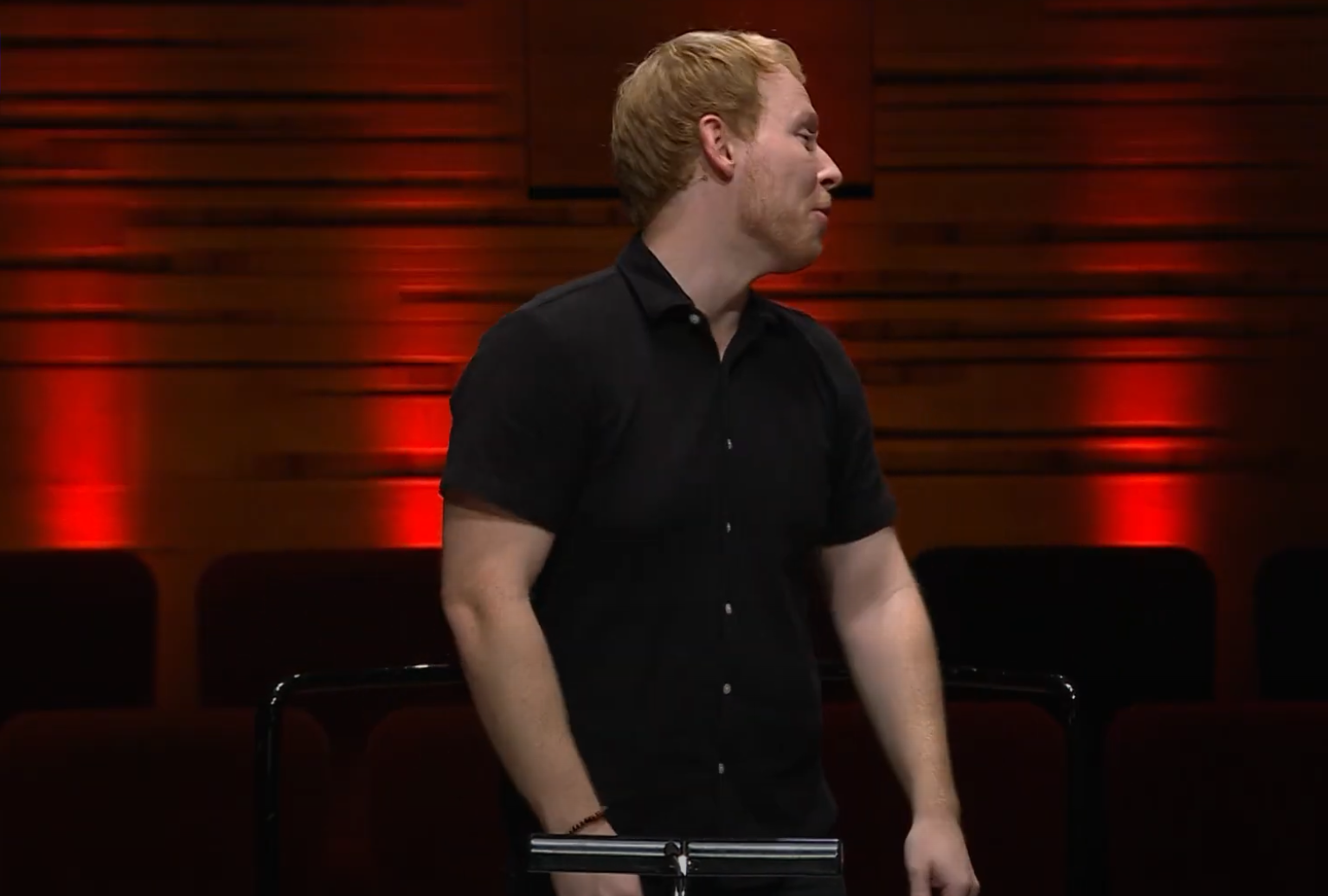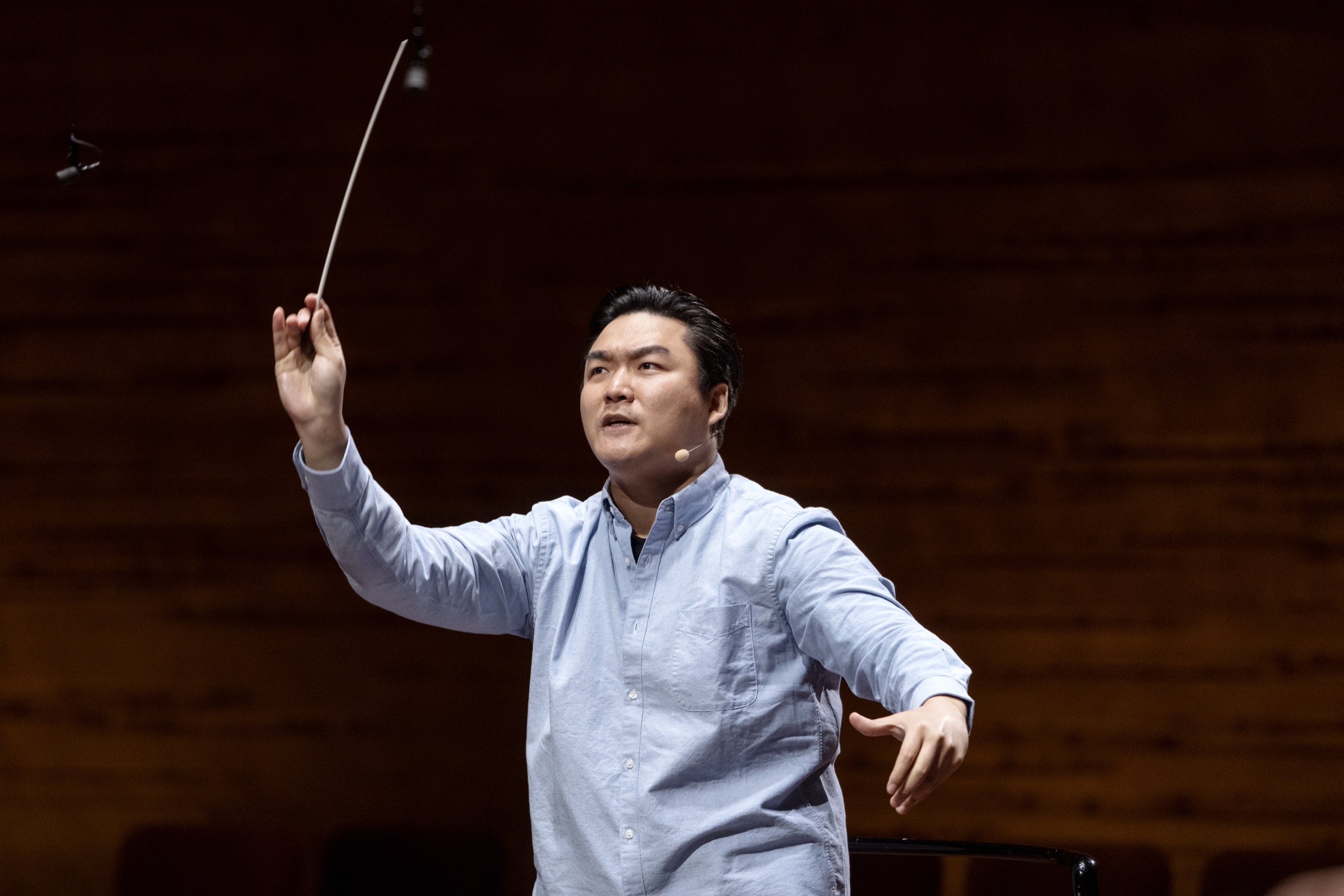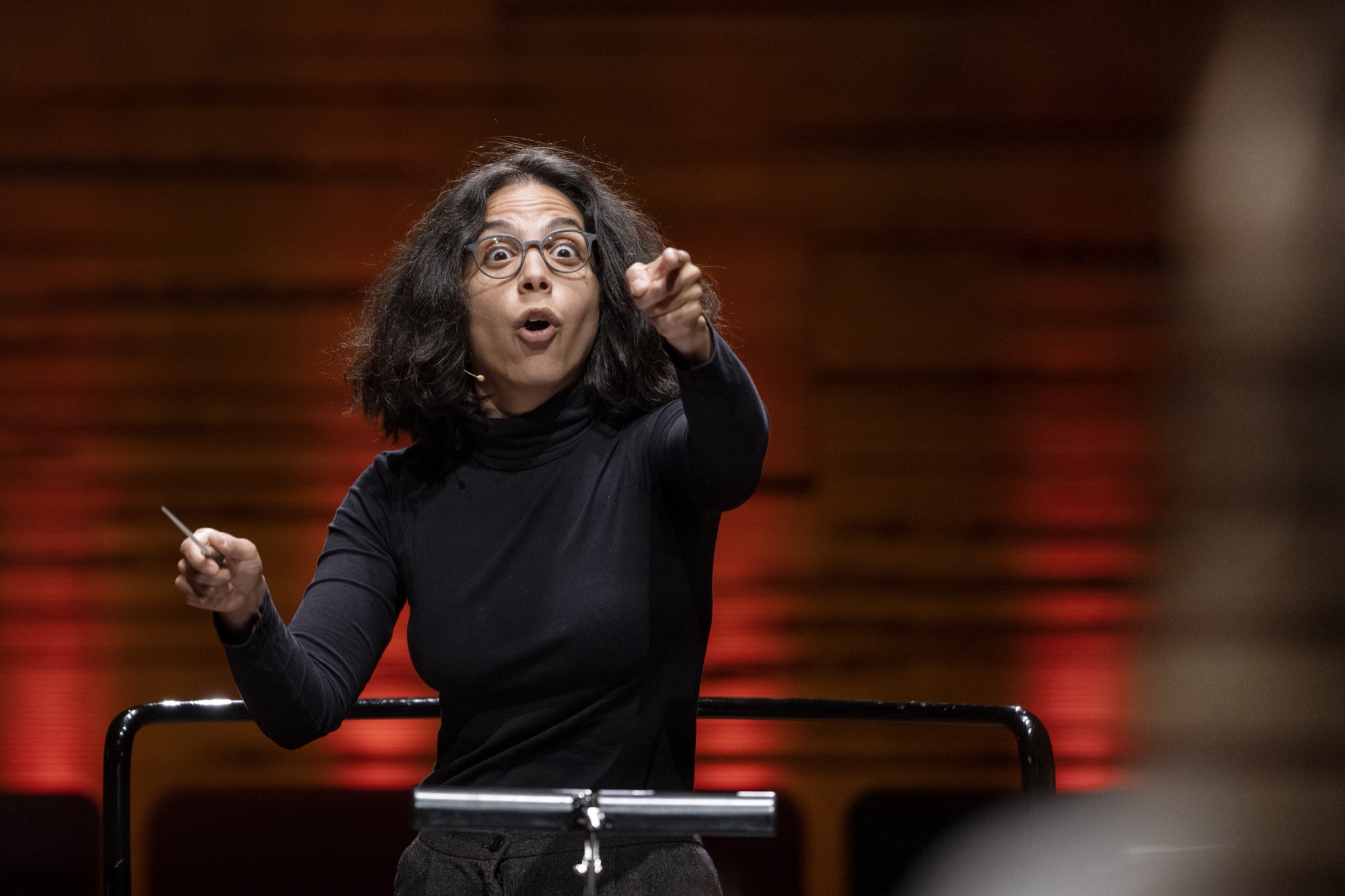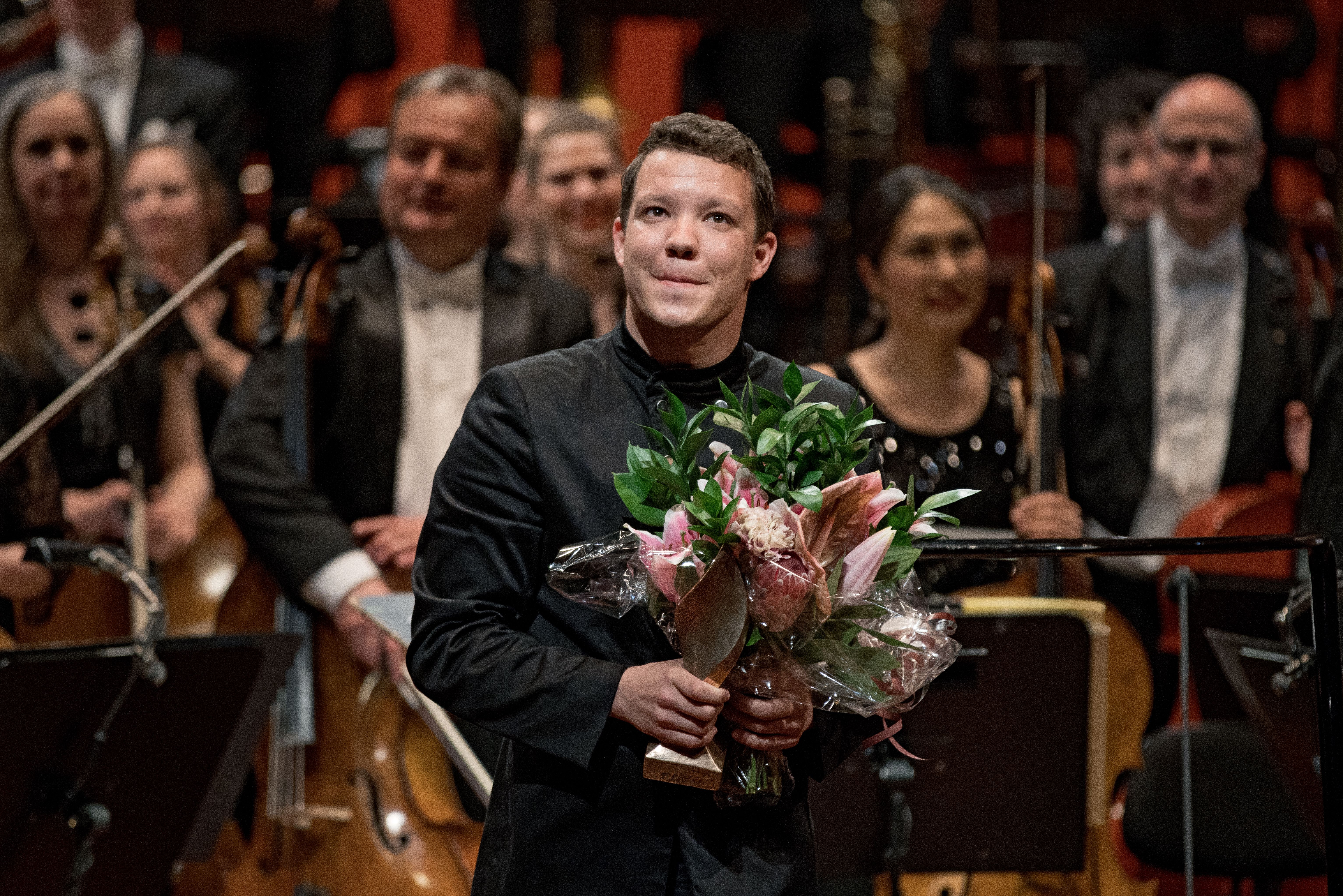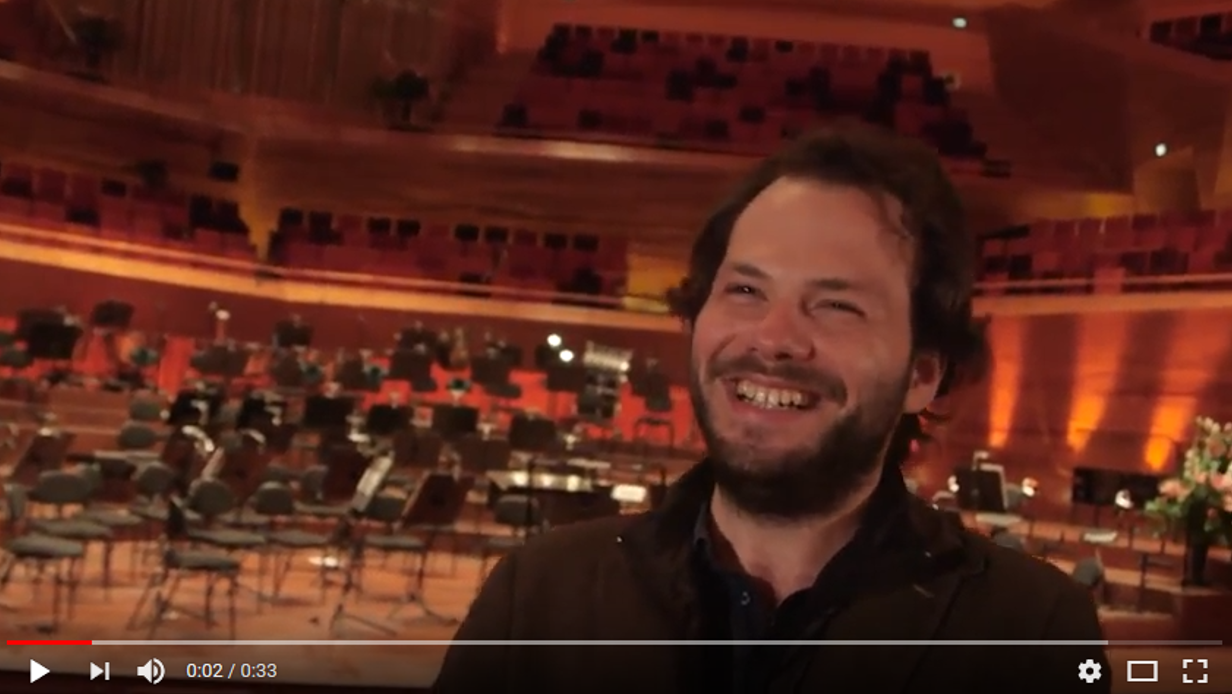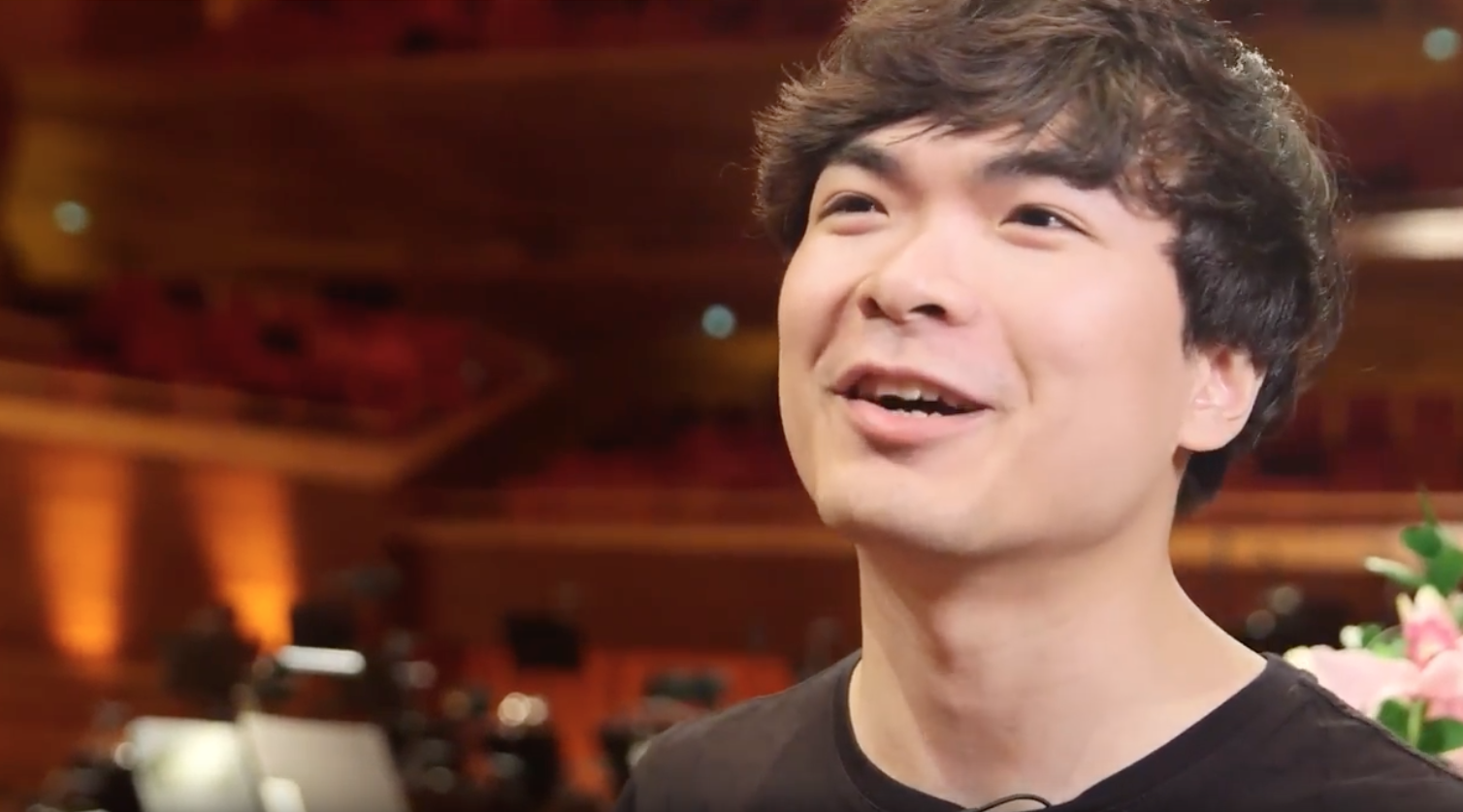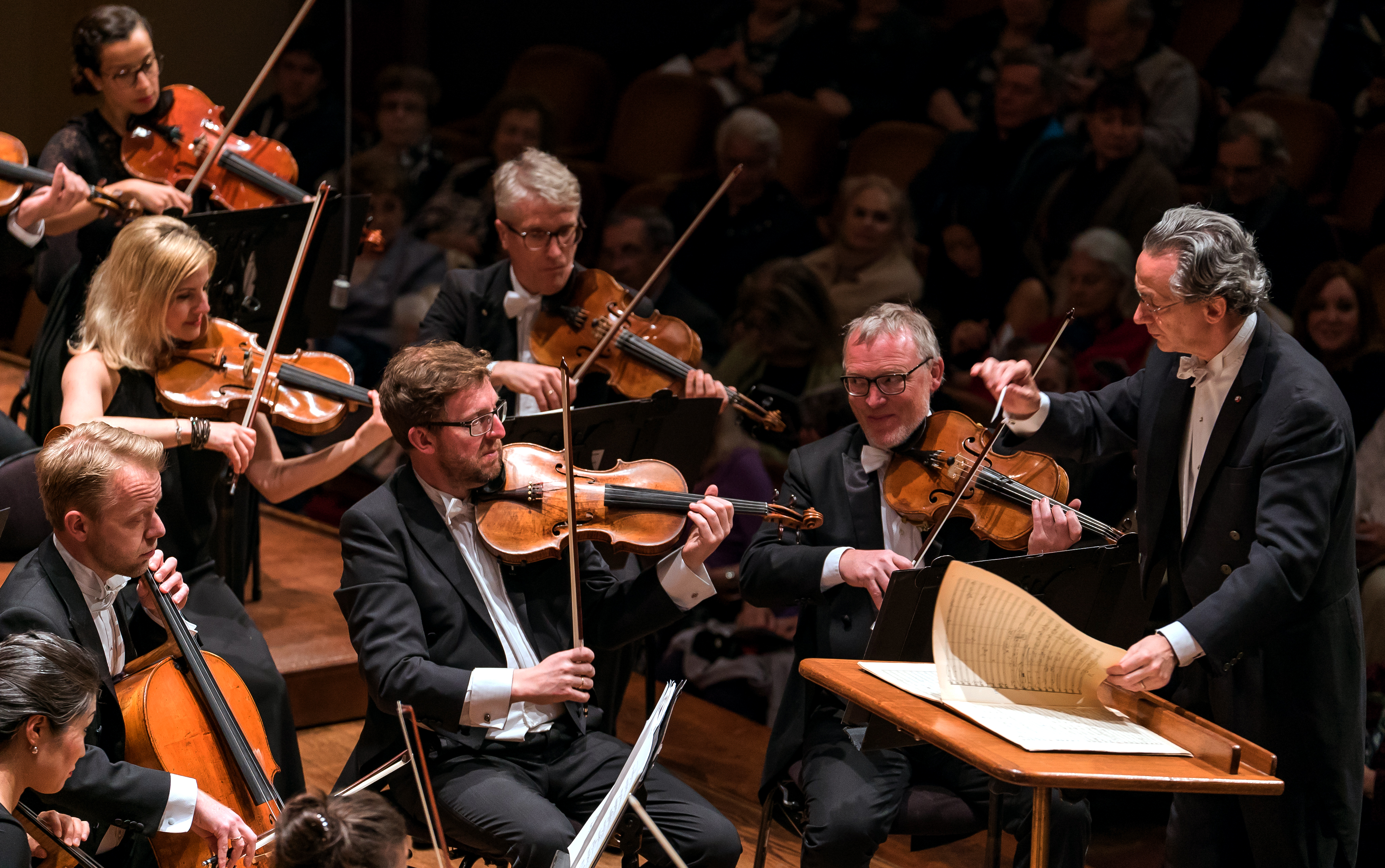So now we know. Samuel Lee, Ana María Patiño-Osorio and Dong Chao are Malko 2024’s finalists. On Saturday night, one of them will be handed a career on a plate: concert contracts from 24 symphony orchestras around the world. Against that, the €20,000 cash prize seems almost incidental.
But first, they must conduct Brahms on Saturday, followed by Carl Nielsen’s Dance of the Cockerel. I can’t wait to see these three in action, and I suspect each has drawn exactly the right Brahms symphony out of the bag.
Here’s why, starting with Dong Chao. We knew he had something special from his Beethoven in Round 1 - that big, broad sound and trustworthy podium presence. It seems almost unfathomable that he’s only 26.
In Round 2, we met a serious musician. He gave us a Mahler Adagietto with no needless sentiment, and a Dvořák From The New World with shadows and shading.
It was in Round 3, though, that Dong Chao really stepped up. His Bartók Concerto for Orchestra was trenchant and imposing - as steadfast as granite. Then, something extraordinary: the only performance of Angélica Negrón’s Campos Flotantes that was blessed with love as well as understanding. Truly, he made music out of it. We knew he had a strong head, but today he showed us he has a beating heart.
Brahms needs both. Dong Chao conducts the first movement of Fourth Symphony in the final, which with its quizzical severity is ideally suited to his ability to keep a cool head, present a clear argument and dig deep.
What is there to say about Ana María Patiño-Osorio, other than that everyone appears to adore her? That includes some of the most hard-nosed members of the Danish National Symphony Orchestra.
Ana Mariá wasn’t an obvious choice to proceed after Round 1, but boy did she blossom in Round 2. She caressed those gorgeous melodies in Dvořák’s From The New World (a lot harder than it sounds) while mining deep expression in her Tchaikovsky.
In Round 3, Ana María sounded at home in Campos Flotantes and showed her gestural credentials in Debussy’s La Mer. But it was her Nielsen that proved, perhaps, that she is a conductor to be reckoned with. In the first movement of the Flute Concerto, played by Ulla Miilmann, she caught Nielsen’s mischievous side while proving her ability to manage the complex dynamics of a concerto.
She’ll enjoy the bump-and-grind and rhythmic sleight-of-hand in the first movement of Brahms’s Symphony No 1, but she’ll need to dig deep into the lower ends of the orchestra.
And so to Samuel Lee, who has given Malko 2024 is most electrifying moment so far: a compellingly sophisticated, wickedly exciting and über-stylish performance of Ravel’s La Valse.
I admit it: I was staggered by what Samuel achieved in his Ravel, conducting with no score and making a visionary decision to temporarily ditch his baton. Both paid off, allowing more direct contact with the orchestra - making for push, pull, brilliance and attention to detail. He showed everything with his hands. What else is conducting about?
There’s almost nothing more left to say. But Samuel did well to capture the ‘ethereal and distant’ qualities in Campos Flotantes, and displayed his calm authority in the Nielsen. As a conductor with a lyrical gift, he surely has the ability to bring us radiance among the shifting clouds of Brahms 2’s first movement.
Whoever wins, I have a feeling there are three fine performances awaiting us on Saturday.
Andrew Mellor
